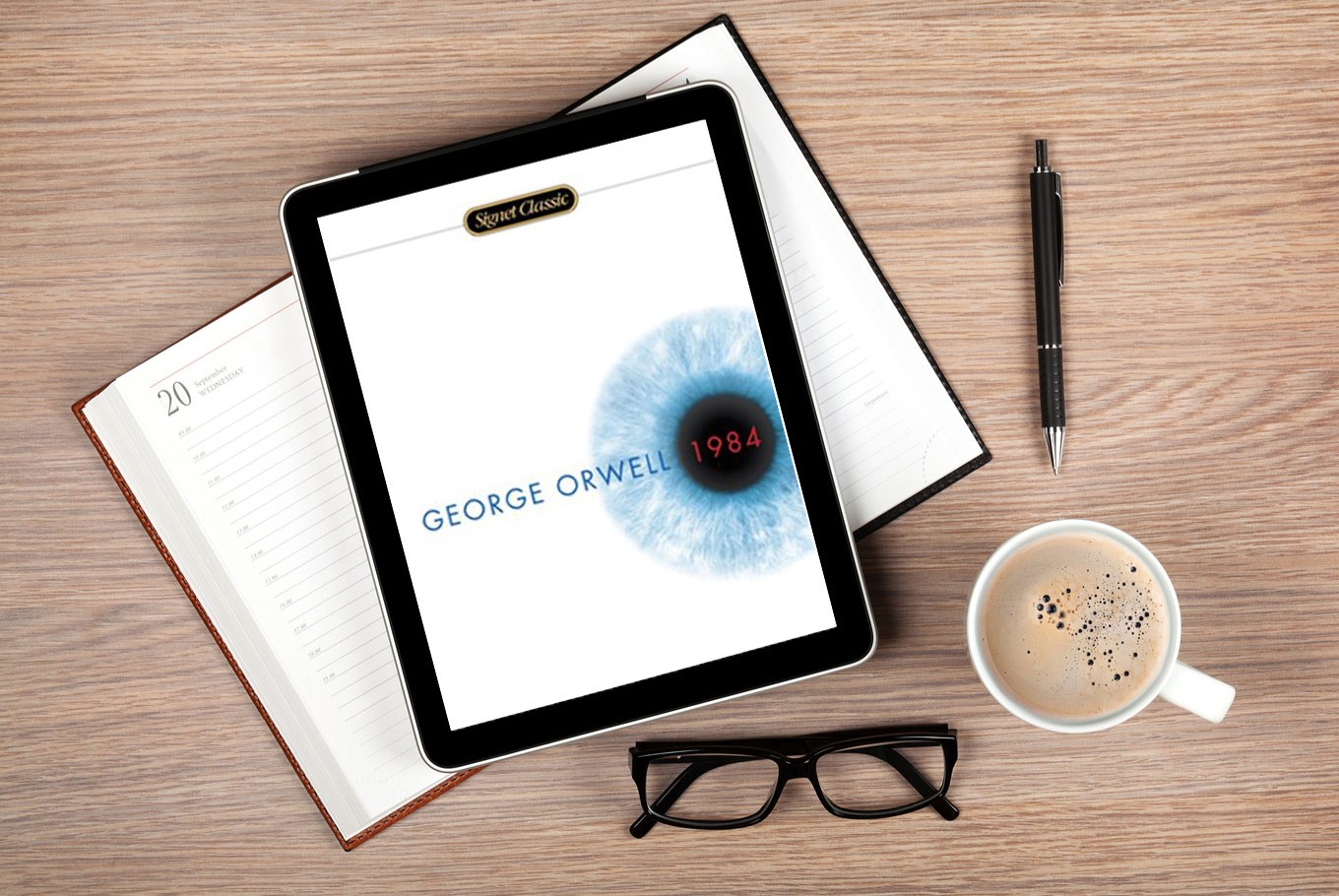Popular Reads
Top Results
Can't find what you're looking for?
View all search resultsPopular Reads
Top Results
Can't find what you're looking for?
View all search resultsFake news, '1984' and our obsession with 'the truth'
In the half-century since Orwell first wrote 1984, we have seen the world transformed by the rise of the internet and, with it, a growth in our access to information and the truth
Change text size
Gift Premium Articles
to Anyone
I
n the half-century since Orwell first wrote 1984, we have seen the world transformed by the rise of the internet and, with it, a growth in our access to information and the truth.
It is easy to look at our reality and see fundamental differences between it and the one posed by 1984: most present-day readers of 1984 aren’t threatened by their governments, and the world we live in is less divided and oppressive than the one Winston has found himself in.
What, then, keeps 1984 relevant? Why is it that year after year, students are made read it in school? Just this year 1984 saw a reprint. Clearly, something about the book has transcended time and conflicting realities—there is some nugget of truth to be gleaned time and time again.
As a book, 1984 isn’t incredibly likable. If anything, it's unsettling; the picture it paints of humanity is unflattering, and Orwell’s straightforward writing does nothing to cushion this blow. Winston is hardly a likeable lead character—his lack of heroism goes beyond that of the classic anti-hero. He’s just average.
That’s what makes this book so timeless. Winston is, like us, just a human being that believes that ‘truth’ cannot be overcome. In the same way that we want to believe what we read online, he wants to believe that the pictures and reality he destroys can’t really be destroyed. In a period of time in which we as a society are beginning to question our media—and, according to some critics, enter a ‘post-truth era’—1984 presents us with a lead character that represents much of what we are currently struggling against.
Read also: The barbaric courtroom called social media
When it comes to digital media and our relationship with information, we have become obsessed with fighting to uphold the truth. Fake news has become so widespread on Facebook that Mark Zuckerberg is actively devising strategies to combat it; AI Twitter bots are spreading false news, and other AI Twitter bots are being deployed to combat them. Never before have we had so much information at our fingertips, and never before have we so questioned its validity. We can spend hours online and still come away with facts and figures taken out of context or, in extreme cases, completely fabricated.
What is truly unique about 1984 is this same obsession with the truth. Winston is a man actively engaged in spreading false media—editing news reports to reflect a new truth and creating entire people to validate baseless claims. In today’s world, he could easily be posting fake-news articles to Facebook. Despite this, he believes, like many of us, that the truth can simply exist by itself. Sometime, somewhere, and somehow, truth must prevail. In our own pop culture, the truth always comes out.
As we read, we become embroiled in this same ideological struggle over truth. We read lines detailing how the masses consciously choose lies over facts, and struggle to understand how the obvious can be so easily ignored. It’s infuriating! The truth simply must exist and matter on its own merit.
But must it? Orwell wasn’t so sure. 1984 was written at a time where many in the West saw themselves as impervious to the authoritarianism of Soviet Russia, and through it Orwell sought to highlight just how wrong this assumption was: even in the UK, truth wasn’t as safe as many thought it was. 1984 may seem a long way off, but the fact that we can continuously relate to it proves otherwise.
Winston ultimately learns that truth means nothing by itself, and this is a reality that we are beginning to struggle with in our fight against fake news in a post-truth era. How do we know what is real, and what do we do with that knowledge? What does the truth matter if nobody cares to believe it? These are the same questions Winston struggles with, and his answer destroys him while sickening us: truth means nothing by itself.
1984 strikes a chord with us not because its writing is ornate or beautiful, but because it’s writing and the truth it shares is raw and horrifying. It isn’t a melodious glimpse into the beauty of our world, but a noisy clamor to action. Most horrifying, though, are the similarities we see between our world and Winston’s. If he can fail, so can we. It’s a chilling lesson, leaving us frustrated and hollow by its end.
We want so desperately for truth to prevail—all other media tells us it will—but how can we know it will?
If you are hesitant to read 1984 because of the book’s age, don’t be. 1984 will never stop being relevant to a society concerned with reality, and, for now, that’s exactly what we are.
***
Allison Graham is a 17-year-old student living in Jakarta. She’s an Irish-American born in Singapore, but since then has lived in Mexico, China, Australia, Chile, Oman and the United States.
---------------
Interested in writing for thejakartapost.com? We are looking for information and opinions from experts in a variety of fields or others with appropriate writing skills. The content must be original on the following topics: lifestyle ( beauty, fashion, food ), entertainment, science & technology, health, parenting, social media, travel, and sports. Send your piece tocommunity@jakpost.com.For more information click here.











